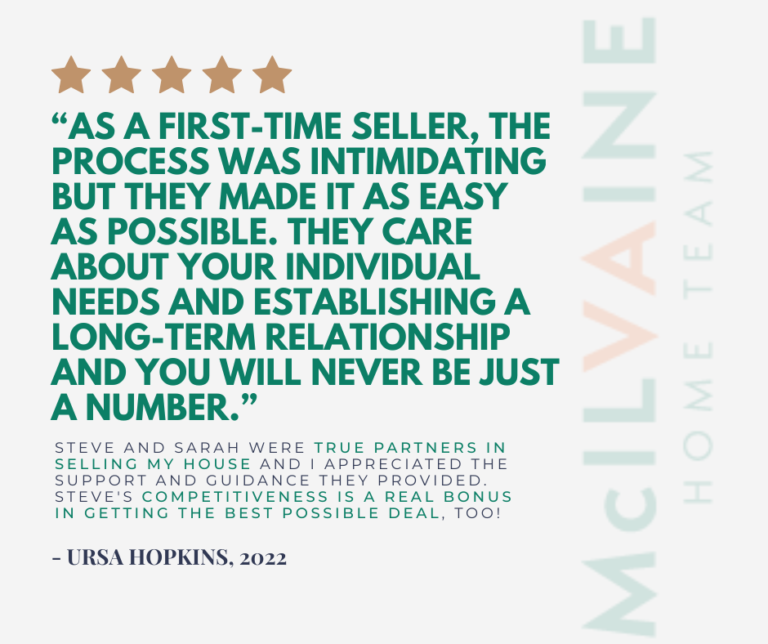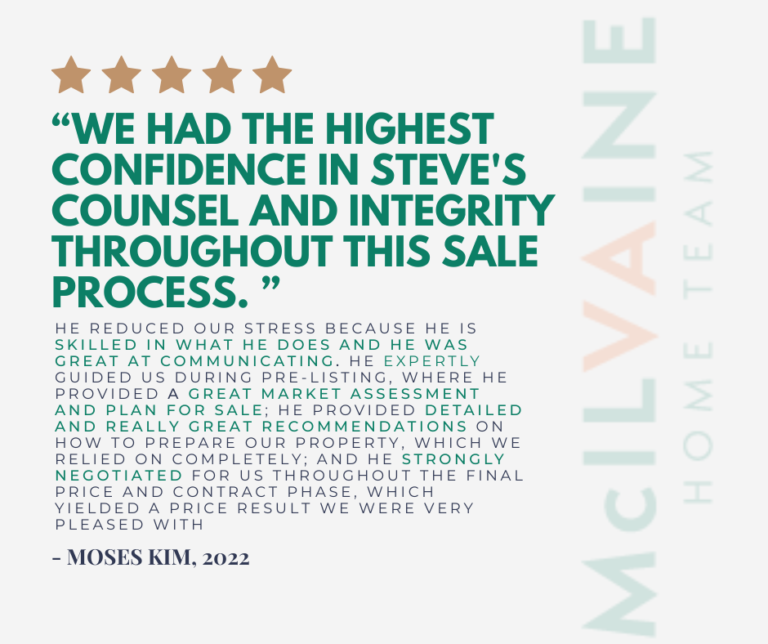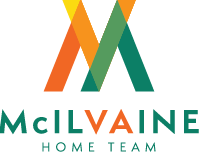THE ULTIMATE GUIDE TO SELLING YOUR HOME
Showing Your Home
After we’ve prepped your house for sale, taken photos, and set a price, we’re ready for the public to see your home.
What is a showing? A showing takes place either at an open house, which is a scheduled session when anyone can come by without an appointment, or during an appointment scheduled with me.
How do I prepare my house for a showing? We’ll talk through specific preparations so that your house is positioned competitively in the market. And, I’ll put you in contact with professionals such as renovators, decorators, and stagers who can help.
Preparations will include two phases.
During phase one, before photos are taken and before the first showing, consider the following action items:
1. Deep Clean
2. Minor painting/caulking as needed
3. If needed and within budget, replace appliances
4. Declutter
5. Stage the home
Phase two, the last-minute prep just prior to any showing, includes: Turn on the lights and open the blinds for maximum light. Take out the garbage. Make the beds. Clear and dust surfaces. Take your pets with you and put away pet bowls. Hide your valuables. Turn off your computer. Set the temperature. Put out fresh towels.
What can I expect when showing my house?
Three important things you can do to help get your house sold are: Leave when your house is being shown. Buyers prefer to look at homes when they can move around freely and the owners aren’t there. Make your house as available as possible.
While it may be inconvenient to show your home at certain times, buyers who can’t see a property when they’re eager may cross it off their list.
Listen to any feedback from buyers or their agents about ways you can make your home more appealing.
We’ll work together to ensure maximum exposure and a faster sale.
Review Offers
Once you receive your first offer (or offers), we’ll evaluate that offer and decide how to respond.
How do I evaluate each offer?
When you receive an offer to buy your home, we’ll review it and consider whether you want to accept it. Whether you have one offer or several, we’ll look at:
1. The amount offered Whether the buyer has included or waived contingencies
2. Where the funds are coming from,
such as all-cash, a reputable local lender, a well-known online lender, or an unknown out-of-town lender
3. The proposed closing date and date of possession of the house to see if it aligns with your needs
4. Any special requests for items to convey or for special inspections
What happens if I receive multiple offers?
We will help you evaluate each and every offer (assumes they will get multiple) and help you select the offer that best meets your needs.
Inspection
Most buyers request a home inspection as a condition of their offer. While a home inspector will dig more deeply into your home than a buyer, the preparation you made before your first showing should help you get ready for the inspection. Before the home inspector visits, I’ll provide personalized advice too.
What is a home inspection? A home inspection is a thorough review of your home’s structure and systems by a professional home inspector. A buyer can use the inspection report to decide to rescind their offer if a major issue is uncovered, or to request repairs if the contract is contingent on a satisfactory report. In some cases, a home inspection is solely for the buyer’s information and can’t be used to negotiate.
What is looked at during a home inspection? The inspector will check:
Structural conditions such as the foundation, beams, and floors
Roof condition
Mechanical systems such as heat and air conditioning
Appliances – to make sure they’re working, although some inspectors skip appliances that are not built-in
Plumbing – for leaks, rust, and water pressure
Electrical systems such as grounded outlets and code violations
Safety issues such as stairs, handrails, mold, or chimney maintenance
What’s not looked at during a home inspection? The inspector won’t check some items that are unusual or inaccessible, such as:
Septic systems
Wells Underground pipes and sprinkler systems
Swimming pools and spas
Playground equipment
How should I prepare for an inspection? Before the home inspector arrives, you should: Clean your house. Remove or crate your pets. Make sure all your lightbulbs work. Empty your washing machine, dryer, oven, and dishwasher – in case they are inspected.
Make sure everything is accessible, including your attic, crawlspace, garage, and any sheds.
Leave a note if anything doesn’t work and explain that you’re getting it fixed. Provide documents about maintenance and repairs. Leave your phone number for the inspector. Leave the house.
What happens now? Once the inspection report has been generated, we’ll discuss how to handle any possible issues a buyer mentions.
We can negotiate with the buyer, decide to fix an item, provide money for the buyer to fix it, or provide documentation that the problem has already been addressed.
I can help you handle any inspection issues as they arise.
Appraisal
As you near the end of your home sale journey, one of the last remaining steps is getting your home appraised.
We’ll help you gather the necessary materials and prepare for the appraiser’s visit.
What is an appraisal? An appraisal is an objective valuation of your property that serves as a safeguard for the buyer and the buyer’s lender. While the buyer pays for an appraisal, the appraiser actually works for the lender. While an appraiser may look at some of the same things as a home inspector, the result is an appraised value of your property rather than a condition report.
How is my house appraised? Appraisers use as many measurable pieces of data available to provide an accurate value of your property, including:
Comparable properties in your area that are of similar size, age, and condition
The condition of your home’s systems and structure
The square footage of your property
The number of bedrooms and bathrooms
Your location
The quality of your flooring, plumbing, and electrical systems
Appraisers include research about other properties and neighborhood values, as well as an in-person visit for their evaluation of your home.
How should I prepare for an appraisal? Preparing for an appraisal is similar to prepping for an inspection. Consider the following action items:
Provide a list of all major improvements to the home and the age and condition of your roof, heating and air conditioning system, and appliances. Provide any permits required for home improvements. Clean your house. Provide full access to all rooms and spaces, including the garage, sheds, attic, and crawlspace. Remove or crate your pets. Leave the house, or at least stay out of the appraiser’s way.
How can an appraisal affect my home sale? An appraisal could require a renegotiation if the property value comes in lower than the sales price. The appraised value dictates the maximum amount the lender will allow the buyers to borrow, minus their down payment. Depending on how the contract was written, if the appraisal is low, we can:
Ask the buyer to come up with extra cash to make up the difference between the loan amount and the purchase price. Reduce your price to the appraised value. Split the difference with the buyer. Cancel the contract.
Should this happen, we’ll explore all available options in the context of the contract and market conditions.
Close
We’re nearly there!
There are a few remaining steps to close on the sale of your house.
What should I do before the closing?
Before closing day, you’ll need to: Take care of repairs required by the contract. Keep all receipts and invoices and before-and-after photos of repairs. Gather all appliance manuals and warranties for your buyers. Hire a mover. Cancel all utilities for the day after you move. Cancel newspaper subscriptions. Change your address. Review all settlement documents, especially the settlement statement. Check the property survey to be sure it’s correct. Clean the house. Prepare for the buyers’ final walk-through.
What can I expect when closing? Sellers may or may not attend the closing, so we’ll work alongside the settlement company to decide what’s best. You may be able to sign all documents before the official closing.
Seller expenses, which are deducted from the proceeds of the sale, include:
Final balance on your mortgage
Real estate commissions
Prorated property taxes, utility bills, homeowners insurance, and homeowners association dues
If you can’t move before the closing, you may need to arrange a rentback from the buyer. A rentback agreement would allow you to remain in your home for a specified amount of time after closing. I can help you complete appropriate paperwork for a rentback should you need it.
If you are moving, the buyer will do a walk-through of your home within 24 hours before the closing to check that the property is in good condition.
If the buyer finds something that needs to be fixed, we’ll work together to decide how to handle it.
Whether or not you attend the closing, you’ll need to provide house keys to your buyer, along with all alarm codes, remote controls for the garage, and mailbox or gate keys.
What’s next?
After the closing, you’ll: Receive the proceeds from the sale, usually by wire transfer. Cancel your homeowners insurance “post-close” – to make sure you’re covered on that day. Save your closing documents and home improvement records for taxes.
Congratulations! You’ve successfully sold your home. After close, make sure to keep in touch with me for all of your future real estate or home ownership needs. Further down the road, should you ever want to buy or sell, I’ll be here. You’ll always have my number, and I’ll always be ready to spring into action.

Would you like to receive our guide to SELLING YOUR HOME?
You can trust us to SELL your home!

There are over 200 steps from meeting to close and we handle it all so you don’t have to! Each year we sell homes at record breaking prices. Our agents are trained to sell your property for the most amount of money in the shortest time possible. You can be confident in our pricing and marketing strategies because we get the job done.
SELL YOUR HOUSE TODAY!
We are looking forward to hearing from you
CALL US : 202-359-2483 | 703-282-4573
EMAIL US : steve@mhtsells.com | sarah@mhtsells.com
Our Effective Pricing Strategy

We reach buyers EVERYWHERE
Our team will determine the best print and digital media strategy for your home, based on the current market, location, features etc. We believe this is not a one-size fits all process, but all ensure that your home is broadcasted via brilliant marketing collateral, individual property landing pages when applicable and via social media platforms. Additionally, we will market your listing to the area’s top real estate professionals, affiliate networks, and our personal spheres of influence. We will actively market your home long before it is placed on MLS to include agent, database, general public marketing.
Client Reviews




